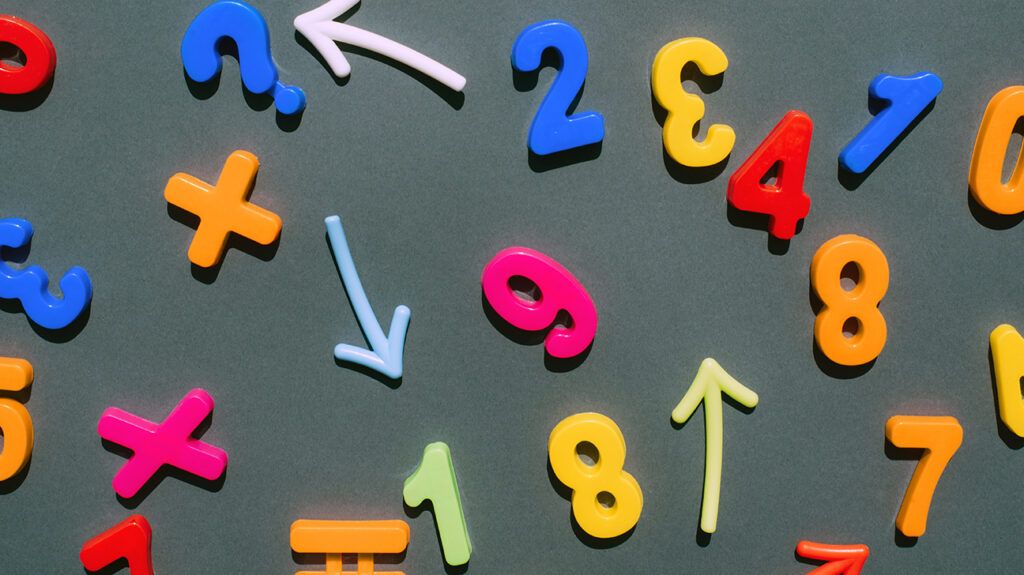Math anxiety can worsen negative attitudes toward math, leading to avoidance behaviors and ultimately limiting any academic and career options that rely on math skills.

If performing math-related tasks, such as managing money or converting measurements while cooking, brings up feelings of fear or nervousness, you could be dealing with math anxiety.
Although math anxiety isn’t a formal mental health diagnosis, it can be challenging to deal with. But self-help tips and support options are available to help you cope.
Here’s how to identify the signs of math anxiety and steps you can take to overcome it.
Math anxiety refers to the sense of unease or fear that individuals experience when dealing with math-related tasks, such as calculations or problem-solving.
Math anxiety can significantly interfere with your ability to focus on math tasks because it hijacks your attention. Instead of concentrating on the problem at hand, your brain gets stuck worrying about making mistakes, which can lead to more errors and slower progress.
Consequently, you might start doubting yourself, avoid math tasks, or find it even harder to understand math concepts.
What’s the difference between math anxiety and dyscalculia?
Math anxiety is based on your emotional reactions to math. It’s distinct from dyscalculia, a cognitive condition that affects a person’s ability to grasp math-based concepts.
You can experience math anxiety even if you’re capable in math, whereas dyscalculia is characterized by genuine cognitive challenges in math comprehension and processing. But having dyscalculia can significantly increase your anxiety around math as well.
Math anxiety might include the following symptoms:
- Feeling nervous or tense when faced with math tasks.
- Experiencing physical symptoms like sweating or a racing heart when doing math.
- Having negative thoughts or self-doubt about your math abilities.
- Avoiding math-related activities altogether.
- Struggling to concentrate during math tests or assignments.
- Experiencing blanking out or mental blocks when trying to solve math problems.
Here are some common causes of math anxiety:
- Negative past experiences: Previous struggles or failures in math can lead to fear and anxiety about future math tasks.
- Pressure to perform: High expectations from oneself, parents, teachers, or peers can create stress and anxiety during math activities.
- Lack of confidence: Low self-esteem or doubts about one’s math abilities can contribute to math anxiety.
- Teaching methods: Ineffective teaching techniques or a lack of personalized instruction may leave students feeling confused and anxious about math.
- Fear of failure: The anticipation of making mistakes or not understanding math concepts can trigger anxiety.
- Gender differences: Gender stereotypes and cultural beliefs about math ability can influence individuals’ perceptions of their own math skills and contribute to anxiety.
2016 research shows that females typically experience higher levels of math anxiety than males. - Perceptions of math: The belief that math is inherently difficult or not relevant to one’s life goals can increase math anxiety.
- Learning differences: Certain learning differences, such as dyslexia or dyscalculia, may increase math anxiety.
Neurocognitive
A 2019 review of several studies found that students who feel more anxious about math tend to perform worse in math.
They also found that this link between anxiety and performance is stronger for Asian students compared to European students, and it’s more noticeable in older high school students than in younger ones.
Additionally, it’s more pronounced in studies that use custom tests or focus on problem-solving skills.
Overcoming math anxiety can be challenging, but here are some strategies that may help:
- Practice regularly: Build your confidence by practicing math regularly, starting with easier problems and gradually progressing to more difficult ones.
- Use resources: Take advantage of online resources, textbooks, and educational apps to find alternative explanations and examples of math concepts. There are also many YouTube videos available that offer tips and strategies for overcoming math anxiety.
- Set a timer: Breaking down your work into manageable chunks of time can make the task feel less overwhelming. Knowing that you only need to focus for 20 minutes at a time can make it easier to get started and maintain momentum.
- Seek support: Don’t be afraid to ask for help from teachers or tutors when you’re having difficulty with math concepts.
- Relaxation techniques: Consider practicing relaxation techniques such as deep breathing or visualization to calm your mind and body before tackling math problems.
- Set realistic goals: Set achievable goals for yourself and celebrate your progress along the way, no matter how small.
- Stay organized: Keeping your math notes and materials organized can reduce feelings of overwhelm and help you approach math tasks more confidently.
While not classified as a distinct disorder in diagnostic manuals, math anxiety can significantly impact academic performance and well-being.
Many students with math anxiety avoid taking advanced mathematics courses. This avoidance behavior severely restricts their career options, as many fields require a certain level of mathematical proficiency.
If you’re experiencing math anxiety, it’s important to seek support. Reach out to trusted individuals who can offer guidance, such as:
- teachers
- school counselors
- therapists
- psychologists
They can help you explore effective interventions to cope with your anxiety and enhance your math skills.
Math anxiety, the fear or nervousness around math tasks, often leads to avoidance behaviors and a negative self-perception about mathematical abilities.
Recognizing and addressing math anxiety is crucial for improving mathematical confidence and performance. Seeking support, building your math skills, and practicing relaxation techniques can help you overcome these challenges and build a more positive relationship with math.
